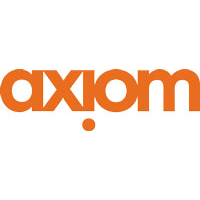

Chief legal officer | Web3 Foundation




Daniel Schönberger
Chief legal officer | Web3 Foundation
How do you approach managing legal aspects during periods of instability or crises, and how does your legal strategy align with the broader business strategy to ensure the organisation’s resilience?
After an unprecedented bull run by the end of 2021, the entire blockchain and crypto industry fell into a similarly unprecedented crisis. The global meltdown started with the “de-pegging” of the algorithmic UST stablecoin and the subsequent vaporising of TERRA-LUNA. In the aftermath, some other prominent bankruptcies followed, among them crypto hedge fund Three Arrows Capital. Additionally, the lightning collapse of Silicon Valley Bank is at least partly ascribed to the lender’s exposure to cryptocurrencies and what is referred to as “crypto contagion”. The ultimate climax was the crashing down of FTX, one of the largest crypto exchanges at the time, and the fall of its founder and CEO, Sam Bankman-Fried, who is now facing a maximum sentence of 115 years in prison. At its worst moment, the overall crypto market capitalisation slumped to a third compared to its peak in 2021. Naturally, regulators did not idly watch retail investors lose their savings to what turned out to be outright fraud in many cases. In particular, the U.S. Securities and Exchange Commission (SEC) increased its crackdown on the crypto industry and launched a series of high-visibility cases, e.g., against crypto exchanges Coinbase and Binance.
During this time, the Web3 Foundation and its flagship Project Polkadot (DOT) remained unscathed. What did we do better than others? From the inception, we took regulatory compliance very seriously. We chose collaboration over litigation. At the end of our three-year journey of continuous communication with the SEC, the Web3 Foundation presented an alternative approach to seeking legal clarity in court: Token morphing, a process for a crypto asset that once was a security to “desecuritise” through consequent decentralisation. Under my leadership as the chief legal officer at the Web3 Foundation, we showcased our experience to numerous Members of the U.S. Congress and other policymakers. In May 2023, I testified in a historic joint Financial Services-Agriculture Subcommittee Hearing entitled: “The Future of Digital Assets: Measuring the Regulatory Gaps in the Digital Asset Markets”. Subsequently, the draft Financial Innovation and Technology for the 21st Century (FIT) Act was issued, reflecting the process of “desecuritisation” for “digital commodities” issued by a “certified decentralised network” as demonstrated by the Web3 Foundation in practice.
With projects like ‘Decentralized Futures’ and ‘Decentralized Voices,’ the Web3 Foundation will continue on the path of consequent decentralisation of the Polkadot ecosystem. The Government Affairs and Public Policy team under my leadership builds on this narrative and will further educate policymakers and advocate for a global regulatory framework that maintains the freedom of Web3 developers to innovate and allows the broader ecosystem to grow and thrive as a decentralised community.
What measures has your company taken to embed sustainability practices into its core business operations, and how does the role of the general counsel contribute to driving and ensuring sustainable practices within the company?
Sustainability aspects are a core feature of so-called Proof of Stake blockchain protocols. We are proud to say that according to a study by the Crypto Carbon Ratings Institute (CCRI), the Web3 Foundation’s flagship project Polkadot has the least overall carbon footprint of the entire crypto industry. While Bitcoin has an energy consumption like that of the whole of Switzerland, Polkadot’s energy use compares to only seven Swiss households. Last year, we launched the Green Polkadot Dashboard displaying the cumulative carbon emissions of the network. Furthermore, we are closely following the technical implementation of the Markets in Crypto Assets Regulation (MiCA), particularly with regards to its sustainability aspects. Compliance with MiCA falls within the remit of the legal department at the Web3 Foundation and is thus the responsibility of me as the chief legal officer.